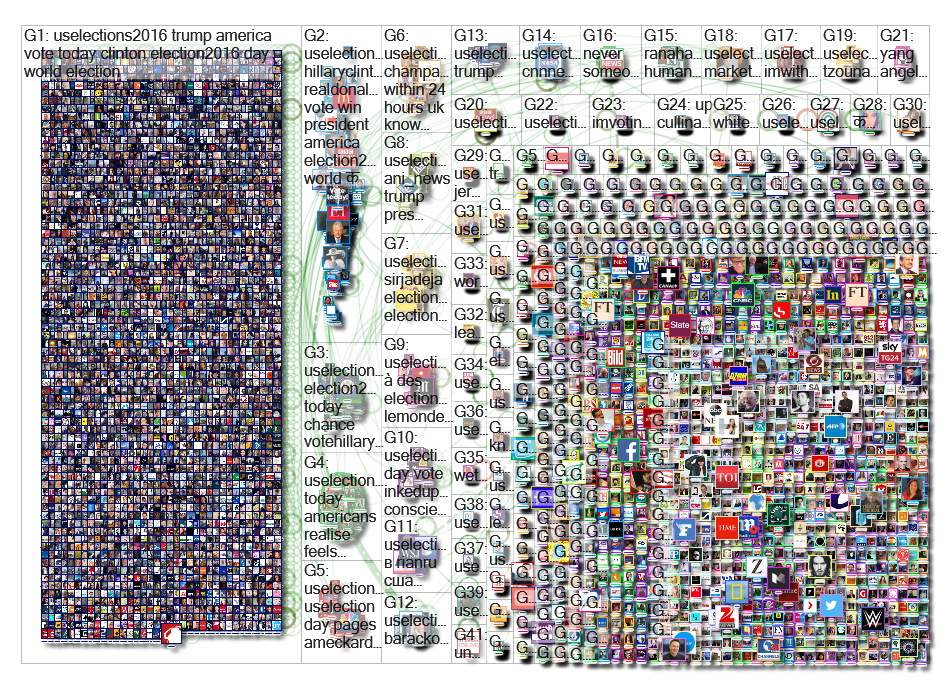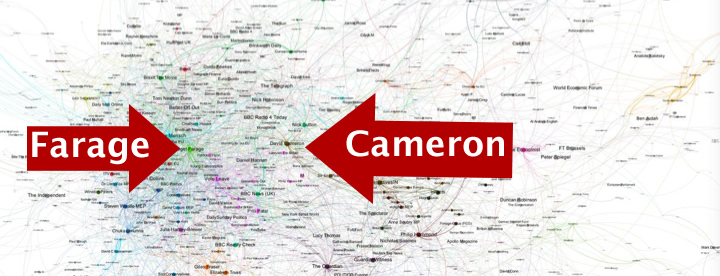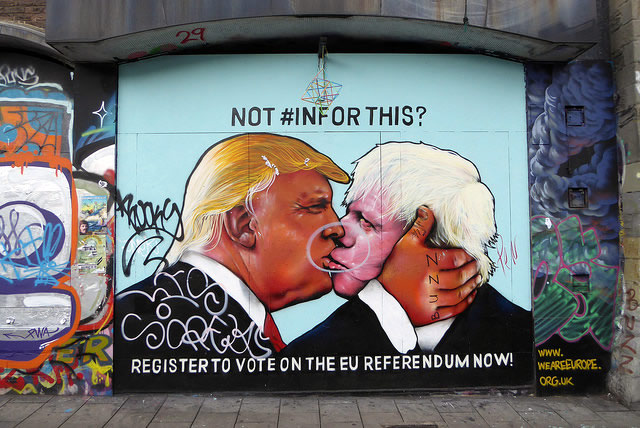
Am I the only one that thinks there is chance that Donald Trump actually might win in the US Election prediction? I don’t have a crystal ball, but even with Beyonce and Jay Z’s help I am just not sure Hillary Clinton can win this week’s US presidential elections.
I have to tell you, I was thrown a few months ago with the result of the EU referendum. But, was I in denial? Were the signs not there? I went to give a talk to our MSc Digital Marketering students about analysing social media and I was asked for a prediction. I said:
At the moment it looks like leave is well ahead but there will be a swing … there is always a swing!
I had the data in front of me, visualised. The conclusions were actually obvious, and I still couldn’t see it. My lesson from #brexit is quite simple. Don’t let your mind play tricks on you and believe only what you want to be true.
Do you know why I think that we need to prepare ourselves for another shock voting result from our friends from across the pond – here are my thoughts based on Social Network Analysis (SNA) research…
US election prediction: Mathematically speaking, Trump might win this

On social media Trump’s message seems to have more reach than Clinton’s. The messages with the most traction on Twitter that are being shared, commented on and retweeted are those of Trump. Is social media echoing the state of one of the most digitally connected nations in the world? The same patterns emerged on social media when we examined the EU Referendum campaigns. The views of Nigel Farage were most influential in shaping the social media conversations whereas David Cameron did not have as much of an audience. In social media analysis we are looking for the sizes of polarised crowds. The more people there are that support a certain side the higher are the chances for them to “win”.

As we can see Farage has a much bigger cluster around him illustrated by this visualisation. On the other hand Cameron has a widely disbursed cluster – of less enthusiastic supporters. This has a similar pattern to that between Clinton and Trump – the Trump impact is stronger when compared to Clinton.
What does this actually mean for my US election prediction?
Clinton’s campaign is concentrating on winning the big states that have won the previous elections; Florida, Colorado and Virginia. But, I don’t think Trump needs to win these to secure his victory. All he needs is to drum home his core messages to unemployed masses in the mid-west states. They are ready to listen to his message – it is exactly what they want to hear right now. When he says (1 minute and 7 seconds):
We’re going to get Apple to start building their damn computers and things in this country instead of in other countries.
For them this is music to their ears!
Lessons from our EU Referendum

The UK #Brexit scenario can easily be replicated in the US. Boris Johnson et al. said what they needed to, and they convinced the masses it is easier done when the only known variables is the current situation. The use of hyperbole in the US Election prediction Donald J Trump knows no limit. He thrives on sound-bites and controversy. And, we know from viral marketing the messages that get emotional response get re-shared and amplified by the audiences.
Make your hyperbole as big as you can!
One of the key reasons that leaving the EU was perceived to be so popular is because all things that are “wrong” in the current UK can be fixed with the vote to leave! For example, the shortage of NHS funding resulted in a very popular lie around £350 million per week which would be given to the NHS. This £350million to NHS claim is just one illustrating the hyperbole that the leave campaigners have been ramming through their messaging and had to retract pretty much as soon as they were victorious:
https://www.youtube.com/watch?v=B0ktojE6WQA
Trump is doing the same thing for many whose America Dream is already in tatters. Building a wall at the Mexican border is just one of these emotionally charged examples:
They are ready to cast their vote. Any electorate can be mischievous. Many people in the UK are now showing #Bregret, but at the time of the vote they were alone, anarchists with polling cards. No one sees when people place a vote. It is a very personal thing, and protest and comedy votes are not unheard of or the Loony Party would not exist at all. No rules and anger about broken political systems means people will vote Trump just like they voted to leave the EU. No need for them to agree with him or anything he stands for in fact. Some will vote because they can “stick it to the man”! And, then Clinton isn’t actually any more popular than Trump:
Nearly 6 in 10 registered voters have an unfavourable impression of Clinton (59%), and an identical percentage see Trump negatively. Nearly half of registered voters, 47%, have a “strongly unfavourable” view of Clinton and Trump alike.
Why is this serious? No one really likes either candidate. What is this election victory going to come down to? Simply, it will be decided by who can persuade people to leave their homes and cast votes; Brexit shows the impact of dissatisfied public opinion. Putting a reality star in the White House is perhaps a way in which the unhappy unemployed people of the US can shake things up. However, this is not to say that hyperbole has not been seen and heard before.
What do you think – is my social media network analysis telling the reality? What is your US Election prediction?